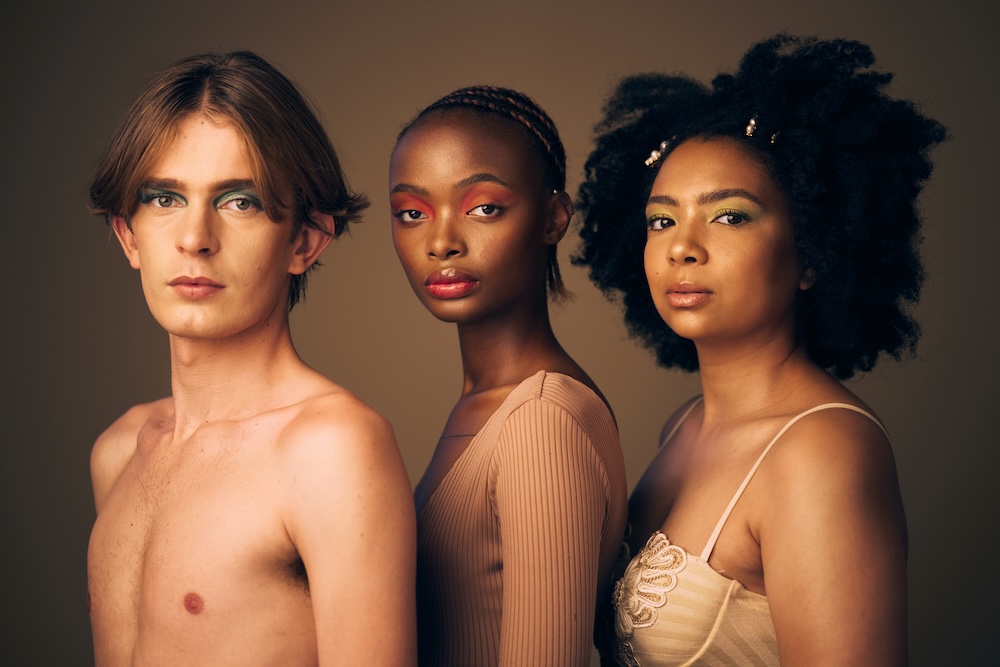Beauty has fascinated humans for centuries. It influences how we see ourselves, how others treat us, and the opportunities we’re given. What we call “beautiful” is not just a personal preference — it is shaped by a complex mix of evolutionary instincts, cultural norms, and psychological factors.
Understanding these drivers can help us step back, challenge narrow beauty standards, and build a healthier, more conscious relationship with our bodies and with one another.
Evolutionary Roots of Beauty
From an evolutionary perspective, attraction to certain features helped humans survive. Physical traits such as symmetry, clear skin, bright eyes, and healthy hair have long been associated with good health and fertility. Research confirms that symmetry in faces and bodies is often linked to developmental stability, which may signal strong genetic quality (Rhodes, 2006).
In early societies, these markers were practical. Choosing partners who appeared healthy increased the likelihood of producing and raising healthy children. While modern life no longer depends on this same instinct, these preferences remain deeply ingrained in human psychology.
Cultural Influences on Beauty Standards
Culture plays just as large a role as biology. In many societies, beauty has historically been tied to social status, wealth, and influence. Attractive individuals often receive privileges, from access to resources to career opportunities.
Media and advertising amplify this dynamic. By promoting a narrow definition of beauty — usually youthfulness, thinness, and specific body types — media creates standards that few can realistically achieve. This leads to cycles of self-doubt, body dissatisfaction, and consumer pressure.
But beauty standards are never fixed. They shift across time and place. In the 19th century, pale skin was prized in Europe, while today tanned skin is often considered fashionable. In some cultures, fuller body types are celebrated as symbols of prosperity and vitality. These differences remind us that beauty is socially constructed, not universal truth.
Psychological Dimensions of Beauty
Our mental health and self-perception are deeply tied to beauty. Many people equate appearance with self-worth, often reinforced by social comparison and fear of rejection.
Psychological research also shows that cultural norms strongly shape what individuals call “personal preference.” What we see and hear repeatedly in media often feels like “our own” taste, when in reality it reflects broader social conditioning.
At the same time, people may simply enjoy the artistry of beauty — in fashion, design, or self-expression. This creative side can be positive, provided it isn’t distorted by unrealistic ideals.
Toward a Healthier Relationship With Beauty
Reframing how we see beauty is possible. By questioning societal pressures and valuing ourselves beyond appearance, we can move toward balance and well-being.
Appreciate your body beyond appearance
Practice gratitude for what your body does — its strength, mobility, resilience — rather than focusing solely on looks. Develop self-compassion and shift your goals toward relationships, growth, and contribution, not just aesthetics.
Challenge narrow beauty standards
Recognize that ideals promoted in media are often unrealistic, commercial, and exclusionary. Embrace diversity in age, body type, skin tone, and gender expression. Seek out and support media that reflects inclusive and sustainable representations of people.
Prioritize conscious self-care
Exercise, mindfulness, time in nature, and creative activities strengthen both body and mind. Unlike appearance-driven practices, these forms of self-care build resilience, reduce stress, and align with sustainable well-being.
Seek support if needed
If beauty obsession becomes overwhelming, therapy or support groups can help address underlying pressures and provide strategies for rebuilding self-esteem.
A Conscious Culture Perspective
While beauty has evolutionary and cultural roots, today it is also a matter of social responsibility and inequality. Narrow beauty ideals reinforce systemic biases — privileging certain body types, skin tones, and ages while marginalizing others.
A more conscious culture recognizes that human worth cannot be reduced to appearance. It emphasizes dignity, diversity, and fairness, aligning beauty with values of inclusion and sustainability rather than exclusion and consumption.
Final Thoughts
Our fascination with beauty is as old as humanity itself. Yet it is not destiny — it is shaped by context, reinforced by culture, and felt deeply in our psychology. By questioning harmful ideals, embracing conscious culture, and practicing healthier self-care, we can create ripple effects that extend beyond personal confidence into a more equitable, sustainable society.









Reader Interactions